
Merging and remastering two essential albums from free jazz saxophonist Marion Brown: his 1966 ESP album "Marion Brown Quartet" with trumpeter Alan Shorter, bassist Reggie Johnson and percussionist Rahied Ali; and his 1967 Fontana album "Juba-Lee" in a septet with Reggie Johnson, drummer Beaver Harris, pianist Dave Burrell, trombonist Grachan Moncur III & saxophonist Bennie Maupin.
In Stock
Quantity in Basket: None
Log In to use our Wish List
Shipping Weight: 3.00 units
EU & UK Customers:
Discogs.com can handle your VAT payments
So please order through Discogs
Sample The Album:
Marion Brown-alto saxophone
Alan Shorter-trumpet
Reggie Johnson-double bass
Ronnie Boykins-double bass
Rashied Ali-drums
Beaver Harris-drums
Dave Burrell-piano
Grachan Moncur III-trombone
Bennie Maupin-tenor saxophone
Click an artist name above to see in-stock items for that artist.
UPC: 752156110224
Label: ezz-thetics by Hat Hut Records Ltd
Catalog ID: ezz-thetics 1102
Squidco Product Code: 27859
Format: CD
Condition: Sale (New)
Released: 2019
Country: Switzerland
Packaging: Cardboard Gatefold
Recorded New York City, in November, 1965.
"Ionce told Marion Brown, after a drink or two, that he played like Bertrand Russell spoke. Fortunately, Brown knew who the great philosopher was and understood the point. Neither sounded quite what you would have expected, and in both the quality of the voice and the nature of the thought seemed quite remote from the other. Brown's sometimes frail and plaintive tone disguised the deep nature of his thinking, never more evident than on his "Capricorn Moon" here. Brown was the sort of man with whom you could discuss Bertrand Russell, without drawing a puzzled look. Brown was deeply devoted all his life to the education of other as well as himself. Despite this, or maybe because of it, he was significantly undervalued for much of his career.
Brown has enjoyed some recognition as a composer. An ECM release perhaps has more commercial leverage than the ESP one from which half of this music is taken, so "Afternoon of a Georgia Faun" is known, by name at least, to many, including some for whom the Debussy reference would be meaningless. Some of Brown's tunes, like "November Cotton Flower" and "Sweet Earth Flying", have achieved some currency, and 40 years ago Amina Claudine Myers saluted him with an entire album of piano performances of his works.
Marion Brown told me he didn't like the term "avant-garde" because of its military associations. His world-view was an internationalist one, profoundly affected by African arts, French music and movies, as well as by architecture (modernist and Gothic) and literature. One of his compositions "Karintha" features a narration to a text by Jean Toomer, the Washington-born poet and singleton novelist (Cane was one of Brown's favourite books), who had worked as a school principal in rural Georgia.
I once asked Wayne Shorter about his elder brother Alan and he told me he was "cultured". I wrote this down, thinking I might use it one day, and then wished I had asked some more, because British people worry about the word. It's not that we are uncultured - though when we go on holiday we can seem that way - but because we have issues with what the word means. In part at least this goes back sixty years to a lecture given by the novelist, scientist and politician C. P. Snow, subsequently published as "The Two Cultures". Snow was concerned that British people equated culture with the arts and the arts with an essentially tragic view of life, while science was dismissed as hopelessly utopian and a bit mechanical. Thus, a "cultured" person was someone who read Shakespeare, listened to Mozart and knew the right temperature at which to serve Chablis, not someone who knew the Second Law of Thermodynamics, the cube root of 27, or the logic of Mendeleyev's periodic table (something else which is celebrating a major anniversary this year).
Listening to Alan Shorter's trumpet playing is to recognise that it is possible to be cultured in both these ways. For here's some ready and useful evidence for a claim that these two men, who came together all too briefly during that brief, intense flowering of free jazz in the middle 1960s, are among the most underrated composers in contemporary music. Who could name an Alan Shorter composition, or, if presented with the titles "Outeroids", "Straits of Blagellan" and "Parabola", offer a guess at the author. These tunes come from a slightly later album, issued on Verve with the provocative title Orgasm; provocative but still not enough to save it from latter-day obscurity. When was the last time that anyone called for Shorter's on the future. Wayne says that Alan used to shout "You're just not ready for this yet!" when audiences heckled his playing.
Here, then, is the early work of two men who in most important regards overturned the conventional image of the jazz musician as hard-drinking, drug-using, spontaneous rather than measured, inclined to elevate ideas over feeling, hedonistic rather than altruistic, wreckers of civilisation (whatever exactly that is) rather than natural builders. We're deeply guilty, all of us, of perpetuating this myth, which is why Marion Brown and Alan Shorter are such precious as well as tutelary figures in our music. They speak to and from a sensibility that is able to absorb ideas without becoming "Iditus" on a club stand, and how many trumpet players, let alone the piano man, would know its challenging line?
It's widely known that Wayne Shorter's high school nickname was "Mr Weird", not so well known than his brother was known as "Doc Strange", on the face of it a more complimentary soubriquet. Alan dropped out of the traditionally black Howard University because its curriculum was restrictive and its ethos too closely attached to the early 20th century gradualism and meliorism of figures like W. E. B. DuBois. He always had a sense of himself and his music as raids fixated on them, that studies and uses classical technique without becoming imprisoned by it or making a fetish of it. (Brown would have bristled at such a casual use of that last term; he knew exactly what a fetish was, and what purpose it really served.) Though both are gone, cruelly prematurely in Alan Shorter's case, Brown in a respectable fullness of years, they are needed more than ever. What the world cries out for in 2019 is cultured men and women, and cultured music."-Brian Morton, from the liner notes
Artist Biographies
• Show Bio for Marion Brown "Marion Brown (September 8, 1931 - October 18, 2010) was an American jazz alto saxophonist and ethnomusicologist. He is most well known as a member of the 1960s avant-garde jazz scene in New York City, playing alongside musicians such as John Coltrane, Archie Shepp, and John Tchicai. He performed on Coltrane's landmark 1965 album Ascension. Brown was born in Atlanta, in 1931. He joined the Army in 1953 and in 1956 went to Clark College to study music. In 1960 Brown left Atlanta and studied pre-law at Howard University for two years. He moved in 1962 to New York, where he befriended poet Amiri Baraka and musicians including Ornette Coleman, Archie Shepp, Sun Ra, Pharoah Sanders, Paul Bley, Clifford Thornton, and Rashied Ali. He appeared on several important albums from this period, such as Shepp's Fire Music and Attica Blues, but most notably John Coltrane's Ascension. In 1967, Brown travelled to Paris, where he developed an interest in architecture, Impressionistic art, African music and the music of Erik Satie. In the late 1960s, he was an American Fellow in Music Composition and Performance at the Cité Internationale des Arts in Paris. Around 1970, he provided the soundtrack for Marcel Camus' film Le temps fou, a soundtrack featuring Steve McCall, Barre Phillips, Ambrose Jackson and Gunter Hampel. Brown returned to the US in 1970, where he felt a newfound sense of creative drive. He moved to New Haven, Connecticut, to serve as a resource teacher in a child study center in the city's public school system until 1971. He composed and performed incidental music for a Georg Büchner play, Woyzeck. In 1971, Brown was an assistant professor of music at Bowdoin College in Brunswick, Maine, a position he held until he attained his Bachelor's degree in 1974. In addition to this role, he held faculty positions at Brandeis University (1971-74), Colby College (1973-74), and Amherst College (1974-75), as well as a graduate assistant position at Wesleyan University (1974-76). Brown earned a Master's degree in ethnomusicology from Wesleyan in 1976. His master's thesis was entitled "Faces and Places: The Music and Travels of a Contemporary Jazz Musician". Throughout his tenure as an educator, Brown continued to compose, perform and record. Notable recordings during this period included Afternoon of a Georgia Faun for the ECM label in 1970 and three albums for the Impulse! label between 1973 and 1975. He played alto saxophone on the composition "Bismillahi 'Rrahman 'Rrahim" from Harold Budd's 1976 release The Pavilion of Dreams, a piece originally written by Budd for Brown's Vista LP, released the previous year. In 1972 and 1976, Brown received grants from the National Endowment for the Arts, which he used to compose and publish several pieces for solo piano, one of which was based on the poetry of Jean Toomer in his book Cane. He also transcribed some piano and organ music by Erik Satie including his Messe des pauvres and Pages mysterieuses, and arranged the composer's Le Fils des étoiles for two guitars and violin. In 1981, Brown began focusing on drawing and painting. His charcoal portrait of blues guitarist Blind Lemon Jefferson was included in a New York City Kenkeleba Gallery art show called Jus' Jass, which also included works by artists such as Romare Bearden, Charles Searles and Joe Overstreet. By the 2000s, Brown had fallen ill; due to a series of surgeries and a partial leg amputation, Brown resided for a time in a nursing home in New York. By 2005 he had moved to an assisted living facility in Hollywood, Florida, where he died in 2010, aged 79." ^ Hide Bio for Marion Brown • Show Bio for Alan Shorter "Alan Shorter (May 29, 1932 - April 5, 1988) was a free jazz trumpet and flugelhorn player, and the older brother of composer and saxophone player Wayne Shorter. Shorter was born in the Ironbound District in Newark, New Jersey. He started on alto saxophone, but switched to trumpet after graduating from high school. He attended Howard University but soon rebelled against the ultra-conservative atmosphere and dropped out. He later graduated from New York University. He played his first professional gigs with a local bebop big band called the Jackie Bland Band (other members included his brother Wayne, trombonist Grachan Moncur III, and pianist Walter Davis, Jr.). He was very much a bebop player in his early years, but soon gravitated towards free jazz, and with the exception of six months he spent in a US Army Band, continued to play in that style for the rest of his career. Shorter recorded two albums as a leader: Orgasm (1968) and Tes Esat (1971). Both were out of print for many years until re-issued by Verve Records in 2004 and 2005, respectively. He also recorded five albums with saxophonist Archie Shepp (1964-1970), including the classic Four for Trane (1964), two albums with Marion Brown (1965-1966), one album with Alan Silva (1970), and made an appearance on one of his brother's albums (The All Seeing Eye ). Several of these albums feature his unusual compositions, his most famous being "Mephistopheles". In the mid-1960s, Shorter moved to Europe, leading his own avant-garde gigs in Geneva and Paris. His style of free jazz sometimes proved to be too far-out for European audiences (his brother remembered that Shorter's gigs in Europe would often end with him responding to the crowd's boos by yelling, "You're not ready for me yet!"), but he generally found European audiences more receptive than those in the U.S. Eventually, he returned to the United States, where he taught briefly at Bennington College but otherwise faded into obscurity. He died of a ruptured aorta in Los Angeles, California in 1988, at age 56, shortly after becoming engaged to Ruth Ann Hancock, a cousin of Herbie Hancock. Shorter's playing is comparable to Don Cherry, but with a more aggressive, anarchic bent. His own albums feature his groups functioning as a unit, rather than focusing on his own virtuosity (or lack thereof). Reportedly, his musical style is much like he was personally: deep and intellectual, but intentionally strange (his childhood nickname was "Doc Strange")." ^ Hide Bio for Alan Shorter • Show Bio for Reggie Johnson "Reginald Volney Johnson (born December 13, 1940) is an American jazz double-bassist. Johnson was born in Owensboro, Kentucky. After playing trombone with school orchestras and army bands, he switched to double bass, and started working with musicians such as Bill Barron and recording with Archie Shepp in the mid-1960s, before joining Art Blakey's band for a month-long residency at the Five Spot Café in December 1965, and then going on to The Lighthouse nightclub in Hermosa Beach, California, where they recorded the live album, Buttercorn Lady, at the beginning of 1966, with a line-up, comprising Blakey, Frank Mitchell, Chuck Mangione, Keith Jarrett, and Johnson. He has also played and/or recorded with Bill Dixon, Sun Ra, and Burton Greene, Lonnie Liston Smith, Stanley Cowell, Bobby Hutcherson, Harold Land, Blue Mitchell, Walter Bishop Jr., Sonny Rollins, Sonny Stitt, Sarah Vaughan, Carmen McRae, Art Pepper, Kenny Burrell, Clark Terry, The Crusaders, Johnny Coles, and Frank Wess. In the mid-1980s he moved to Europe, where he has worked with Johnny Griffin, Horace Parlan, Monty Alexander, Kenny Barron, Tom Harrell, Phil Woods, Cedar Walton, Alvin Queen, Jesse Davis, Freddie Redd and Clark Terry." ^ Hide Bio for Reggie Johnson • Show Bio for Ronnie Boykins "Ronnie Boykins (December 17, 1935 - April 20, 1980) was a jazz bassist and is best known for his work with pianist/bandleader Sun Ra, although he had played with such disparate musicians as Muddy Waters, Johnny Griffin, and Jimmy Witherspoon prior to joining Sun Ra's Arkestra. He joined the Arkestra during the Chicago period, travelled with them to Canada and then to New York City. Boykins has been described as "the pivot around which much of Sun Ra's music revolved for 8 years". This is especially pronounced on the key recordings from 1965 (The Magic City, The Heliocentric Worlds of Sun Ra, Volume One and The Heliocentric Worlds of Sun Ra, Volume Two) where the intertwining lines of Boykins' bass and Ra's electronic keyboards provide the cohesion. He was a regular member of Sun Ra's band from 1958 until 1966, and occasionally thereafter up to 1974. Like his fellow Sun Ra bandmates, John Gilmore and Pat Patrick, Boykins attended Chicago's DuSable High School and studied under its famed music teacher "Captain" Walter Dyett. He also studied with Ernie Shepard, who would later work with Duke Ellington. Before joining Ra, Boykins had joined with a trombonist friend to open a private club-The House of Culture-with the intent of promoting black culture. Boykins' arco solo on Sun Ra's "Rocket No. 9 Take Off for Planet Venus" from 1960 may be the first recorded example of the bass being played in a horn-like manner within a relatively free context, predating similar work by Alan Silva and David Izenzon. Boykins worked with both free and straight-ahead musicians. In 1962, he recorded with the hard bop tenor saxophonist Bill Barron and, the next year, with pianist Elmo Hope. Boykins worked with tenor saxophonist Archie Shepp's New York Contemporary Five in 1964. Boykins left Ra in 1966, ostensibly to pursue more lucrative opportunities; Ra had a difficult time finding a replacement, at times settling for playing his own bass lines on keyboard. In the late '60s, he formed his own group, the Free Jazz Society, which included the pianist John Hicks. In the '70s, Boykins played with the Melodic Art-tet, a cooperative free jazz ensemble that also included drummer Roger Blank, saxophonist Charles Brackeen, and trumpeter Ahmed Abdullah. In 1975, the bassist led a session for ESP Disk that produced his sole LP as a leader, The Will Come, Is Now. In 1979 he played with Steve Lacy and Dennis Charles on New York Capers and Quirks. In the course of his career, Boykins also worked with Mary Lou Williams, Marion Brown, Sarah Vaughan, and Hajj Daoud Haroon, among others. He died of a heart attack in 1980 at the age of 44." ^ Hide Bio for Ronnie Boykins • Show Bio for Rashied Ali "Rashied Ali, born Robert Patterson (July 1, 1933) was a progenitor and leading exponent of multidirectional rhythms and polytonal percussion. A student of Philly Joe Jones and an admirer of Art Blakey, Ali developed the style known as "free jazz" drumming, which liberates the percussionist from the role of human metronome. The drummer interfaces both rhythmically and melodically with the music, utilizing meter and sound in a unique fashion. This allows the percussionist to participate in the music in a harmonic sense, coloring both the rhythm and tonality with his personal perception. By adding his voice to the ensemble, the percussionist becomes an equal in the melodics of collective musical creation rather than a "pot banger" who keeps the others all playing at the same speed. Considered radical in the 1960s and scorned by the mediocre, multidirectional rhythms and polytonal drumming are now the landmark of the jazz percussionist. A Philadelphia native, Rashied Ali began his percussion career in the U.S. Army and started gigging with rhythm and blues and rock groups when he returned from the service. Cutting his musical teeth with local Philly R&B groups, such as Dick Hart & the Heartaches, Big Maybelle and Lin Holt, Rashied gradually moved on to play in the local jazz scene with such notables as Lee Morgan, Don Patterson and Jimmy Smith. Early in the 1960s the Big Apple beckoned, and soon Rashied Ali was a fixture of the avant-garde jazz scene, backing up the excursions of such musical free spirits as Don Cherry, Pharoah Sanders, Paul Bley, Archie Shepp, Bill Dixon and Albert Ayler. It was during this period that Rashied Ali made his first major recording ("On This Night" with Archie Shepp, on the Impulse! label) and began to sit in with John Coltrane's group at the Half Note and other clubs around Manhattan. In November 1965 John Coltrane decided to use a two-drummer format for a gig at the Village Gate; the percussionist Trane chose to complement the already legendary Elvin Jones was Rashied Ali. Thus began a musical odyssey whose reverberations are still felt in the music today--Trane probing the outer harmonic limits and changing the melodic language of jazz while Rashied Ali turned the drum kit into a multi-rhythmic, polytonal propellant, helping fuel Coltrane's flights of free jazz fancy. The rolling, emotion-piercing music generated by the Coltrane/Ali association is still being discussed, analyzed, reviewed and enjoyed as the internet and new audio technology introduces their era to a new host of the sonically aware. After Coltrane's passing in 1967, Rashied Ali headed for Europe, where he gigged in Copenhagen, Germany and Sweden before settling in for a study period with Philly Joe Jones in England. Upon his return from the continent, Rashied Ali resumed his place at the forefront of New York's music scene, working and recording with the likes of Jackie McLean, Alice Coltrane, Archie Shepp, Gary Bartz, Dewey Redman and others too numerous to mention here. In response to the decaying New York jazz scene in the early 1970s, Rashied Ali opened the loft-jazz club, Ali's Alley, in 1973 and also established a companion enterprise, Survival Records. Ali's Alley began as a musical outlet for New York avant-garde but soon became a melting pot of jazz styles. Although the Alley closed in 1979, its legacy continues in the New York jazz scene. During that time, Rashied recorded and released several albums on the Survival Records label and was busy gigging with a virtual Who's Who in jazz, refining his music and encouraging up-and-coming younger musicians. In the '80s and '90s, his presence on the scene was sporadic; he performed on occasion with bassist Jaco Pastorius, and recorded with tenor saxophonist David Murray. In 1987 he recorded and performed as a member of the group Phalanx, with guitarist James "Blood" Ulmer, tenor saxophonist George Adams, and bassist Sirone. Also in that year Rashied formed a group with multi-instrumentalist Arthur Rhames, saxophonist Antoine Roney, bassist Tyler Mitchell, and pianist Greg Murphy. In 1991, he made the critically acclaimed album "Touchin' on Trane" with bassist William Parker and tenor saxophonist Charles Gayle, a group called By Any Means that was formed in the '80s and continued to perform until 2009. In the early '90s he formed a quintet with Ravi Coltrane, Matt Garrison, Greg Murphy and guitarist Gene Ess, later releasing his 1992 recording "No One in Particular" in 2001 on Survival Records. One tour of France with this group featured Carlos Santana and Archie Shepp. The '90s also found Ali at the helm of the band, Prima Materia, an ensemble dedicated to interpreting the late works of Coltrane and Albert Ayler. This group toured extensively and in 1994, 1995, and 1996, they recorded "Peace on Earth," "Meditations," and "Bells" for the Knitting Factory Works label. He also appeared on more than half a dozen discs with guitarist Tisziji Muñoz--the majority of which were recorded in Rashied's own Survival Studios. In 2003 Rashied formed another version of The Rashied Ali Quintet. In 2005 they released two CDs--"Judgment Day Vol. 1" and "Judgment Day Vol. 2," both of which received significant national airplay and volumes of critical acclaim. In 2009 "Live In Europe" by the Rashied Ali Quintet was released, also on the Survival Records label. This group, which Jazz Times critic Bill Milkowski called "...one of the more potent working quintets in jazz today," developed a style that combined modern post-bop with Ali's trademark free jazz. This group toured frequently, with their final performances taking place at The Art of Jazz festival in Toronto in June and at the Zinc Bar in NYC in July of 2009. Rashied died August 12, 2009 in a Manhattan hospital after suffering a pulmonary embolism. He was 76. Besides his wife, Patricia, he is survived by two brothers, the jazz drummer Muhammad Ali and Umar Ali, both of Philadelphia, and nine children." ^ Hide Bio for Rashied Ali • Show Bio for Beaver Harris "William Godvin "Beaver" Harris (April 20, 1936 - New York, New York, December 22, 1991) was an American jazz drummer who worked extensively with Archie Shepp. Harris was born in Pittsburgh, Pennsylvania. Coming from an athletic family, he played baseball as a teenager for the Kansas City Monarchs (then part of the Negro American League) and was scouted by major league teams Brooklyn Dodgers and New York Giants. It was only after he was in the army that he began playing drums. After his national service ended in 1963 he moved to New York City and was encouraged to pursue a musical career by Max Roach. While in New York he worked and/or toured with Marion Brown, Dexter Gordon, Albert Ayler, Joe Henderson, Freddie Hubbard, Clifford Jordan, Howard Johnson, Sheila Jordan, Lee Konitz, Thelonious Monk, Roswell Rudd, Sonny Rollins, McCoy Tyner, Sonny Stitt, Clark Terry, Chet Baker, Doc Cheatham and Larry Coryell among other musicians. In addition, Harris founded a "world music" band and called it "The 360 Degree Music Experience". The band included some of the most significant artists of the time, including Buster Williams, Hamiet Bluiett, Don Pullen, Jimmy Garrison, Ron Carter, Ricky Ford, Titos Sompa and many others. Harris died of prostate cancer in New York at the age of 55. His children, William Godvin Harris III, Verna Harris Vaughn, and Portia Harris." ^ Hide Bio for Beaver Harris • Show Bio for Dave Burrell "Distinguished composer-pianist Dave Burrell is an African-American performing artist of singular stature on the international contemporary music scene. His dynamic compositions with blues and gospel roots recall the tradition of Jelly Roll Morton, James P. Johnson and Duke Ellington, as well avant garde composers Thelonious Monk and John Coltrane. Dave and his parents moved from New York to Hawaii in 1946. After majoring in music at the University of Hawaii, he enrolled at Berklee College of Music in Boston, Massachusetts graduating with degrees in composition/arranging and performance in 1965. He moved to New York City, where he quickly established himself as one of the most innovative and original pianists, collaborating with the emerging leaders in contemporary jazz, joining the groups of saxophonists Marion Brown, Pharoah Sanders and Archie Shepp. [...] Dave Burrell has 40 recordings under his own name, among them High, High Two, Echo, La Vie de Boheme, After Love, In-Sanity, Only Me, Dreams, Black Spring, Lush Life, 'Round Midnight, Teardrops for Jimmy, Windward Passages, Daybreak, Brother to Brother, In Concert, Jelly Roll Joys, Esquisses for a Walk, Live at Caramoor, Changes and Chances, Recital, Expansion, Margy Pargy, Momentum, Dave Burrell Plays His Songs, No Fools No Fun, Dave Burrell Conception. Dave Burrell appears on 130 recordings, among them his pivotal recordings with tenor saxophonists Archie Shepp: Live from Pan-African Festival, There is a Trumpet in MySoul, Blasé, Kwanza, Attica Blues, Cry of My People, Montreaux One, Montreaux Two, Lover Man, Pharoah Sanders: Tauhid, Marion Brown: Jubalee, Three For Shepp, Live in Japan, David Murray: Hope Scope, Lovers, Deep River, Ballads, Spirituals, Remembrances, Lucky Four, Picasso, Windward Passages. Other important recordings are 360 Degree Music Experience: From Ragtime to No Time, In:sanity, Grachan Moncur: New Africa, Sunny Murray: Homage to Africa, Bob Stewart: Here and Now, and Consequences with drummer Billy Martin. The Inside Songs of Curtis Mayfield and Essence of Ellington with William Parker's Ensembles. Horo Records in Italy recently released a live duo recording, No Fools No Fun with Ellington-drummer Sam Woodyard from a 2 months long engagement in Paris (1979). Dave Burrell appears on the Argentine saxophonist Roberto Pettinato's Sony/Columbia Argentina Records releases Purity and Same Egg. A live duo recording with guitarist Garrison Fewell, New Earth to be released in 2015. A frequent lecturer, Burrell's Master Classes include Strasbourg Conservatory, Tremblay Conservatory (Paris), Conservatoire Municipal (Paris), Guildhall School of Music and Dance (London), Columbia University, New York University, Queens College, Bard College, New York. University of Pennsylvania, Swarthmore College, Bryn Mawr College, Duquesne University, School of Music, Pennsylvania. Brandeis University, Massachusetts. Rice University, Houston, Texas. DePauw University, Indiana. Library of Congress and Kennedy Center, Washington, D.C. Burrell's most recent commissions include Rosenbach Museum and Library, Philadelphia, and Whitney Museum, New York City. Dave Burrell is the recipient of numerous grants and awards including National Endowment for the Arts, Philadelphia Music Foundation, William J. Cooper Foundation, New York State Council on the Arts, Pennsylvania State Council on The Arts, MidAtlantic Foundation, John Garcia Gensel Award, and the Pew Fellowship in Jazz Composition. Dave Burrell joined the Steinway Artist Roster (www.Steinway.com) in 2007." ^ Hide Bio for Dave Burrell • Show Bio for Grachan Moncur III "Grachan Moncur III (born June 3, 1937) is an American jazz trombonist. He is the son of jazz bassist Grachan Moncur II and the nephew of jazz saxophonist Al Cooper. Born in New York City (his father's father was from the Bahamas) and raised in Newark, New Jersey, Grachan Moncur III began playing the cello at the age of nine, and switched to the trombone when he was 11. In high school he attended the Laurinburg Institute in North Carolina, the private school where Dizzy Gillespie had studied. While still at school he began sitting in with touring jazz musicians on their way through town, including Art Blakey and Jackie McLean, with whom he formed a lasting friendship. After high school Moncur toured with Ray Charles (1959Ð62), Art Farmer and Benny Golson's Jazztet (1962), and Sonny Rollins. He took part in two classic Jackie McLean albums in the early 1960s, One Step Beyond and Destination... Out!, to which he also contributed the bulk of compositions and which led to two influential albums of his own for Blue Note Records, Evolution (1963) with Jackie McLean and Lee Morgan, and Some Other Stuff (1964) with Herbie Hancock and Wayne Shorter. Moncur joined Archie Shepp's ensemble and recorded with other avant-garde players such as Marion Brown, Beaver Harris and Roswell Rudd (the other big name in American free jazz trombone). During a stay in Paris in the summer of 1969, he recorded two albums as a leader for the famous BYG Actuel label, New Africa and Aco Dei de Madrugada, as well as appearing as a sideman on numerous other releases of the label. In 1974, the Jazz Composer's Orchestra commissioned him to write Echoes of Prayer (1974), a jazz symphony featuring a full orchestra plus vocalists and jazz soloists. His sixth album as a leader, Shadows (1977) was released only in Japan. Unfortunately, he was subsequently plagued by health problems and copyright disputes and recorded only rarely. Through the 1980s he recorded with Cassandra Wilson (1985), played occasionally with the Paris Reunion Band and Frank Lowe, appeared on John Patton's Soul Connection (1983), but mostly concentrated on teaching. In 2004 he re-emerged with a new album (Exploration) on Capri Records featuring Grachan's compositions arranged by Mark Masters for an octet including Tim Hagans and Gary Bartz." ^ Hide Bio for Grachan Moncur III • Show Bio for Bennie Maupin "Bennie Maupin's highly personal bass clarinet sound helped define such classic jazz recordings as Miles Davis' Bitches Brew, Jack Johnson, Big Fun and On the Corner, as well as recordings by Herbie Hancock's Mwandishi band, and the Headhunters. The multi-woodwind player has also recorded with Marion Brown, Chick Corea, Horace Silver, McCoy Tyner, Lee Morgan, Freddie Hubbard, Jack DeJohnette, Andrew Hill, Eddie Henderson and Woody Shaw, to name only a few. The instrumentation of Maupin's current group, The Bennie Maupin Ensemble, harkens back to the tradition of great saxophone-bass-drum trios, such as the group led by Sonny Rollins with Wilbur Ware and Elvin Jones. Maupin's approach to his music is intentional and profound, yet alive in the interpretation of the moment." ^ Hide Bio for Bennie Maupin
6/18/2025
Have a better biography or biography source? Please Contact Us so that we can update this biography.
6/18/2025
Have a better biography or biography source? Please Contact Us so that we can update this biography.
6/18/2025
Have a better biography or biography source? Please Contact Us so that we can update this biography.
6/18/2025
Have a better biography or biography source? Please Contact Us so that we can update this biography.
6/18/2025
Have a better biography or biography source? Please Contact Us so that we can update this biography.
6/18/2025
Have a better biography or biography source? Please Contact Us so that we can update this biography.
6/18/2025
Have a better biography or biography source? Please Contact Us so that we can update this biography.
6/18/2025
Have a better biography or biography source? Please Contact Us so that we can update this biography.
6/18/2025
Have a better biography or biography source? Please Contact Us so that we can update this biography.
Track Listing:
1. Capricorn Moon 22:29
2. Mephistopheles (miss-titled Exhibition) 18:15
3. Juba Lee 12:35
4. Iditus 12:21
Hat Art
Jazz
Free Improvisation
NY Downtown & Metropolitan Jazz/Improv
Quintet Recordings
Jazz Reissues
Staff Picks & Recommended Items
Top Sellers for 2019 by Customer Sales
Hat Hut Masters Sale
Search for other titles on the label:
ezz-thetics by Hat Hut Records Ltd.


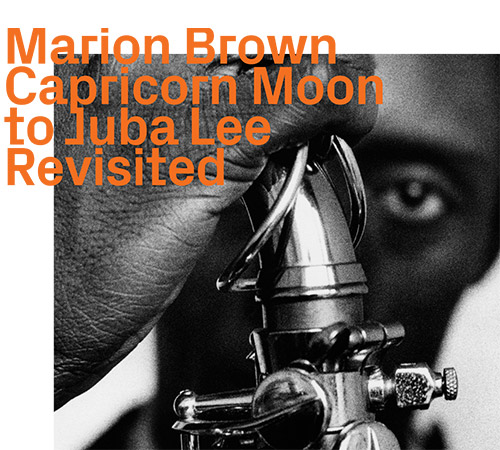
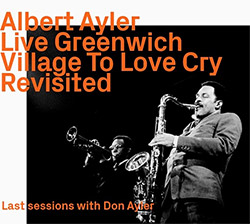
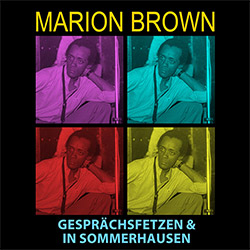


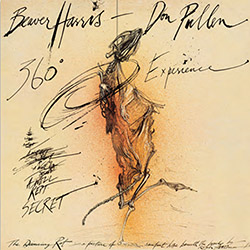
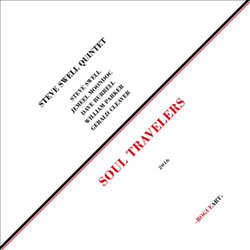
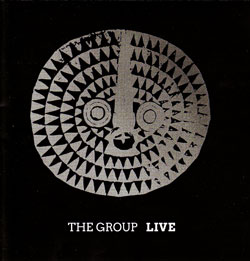

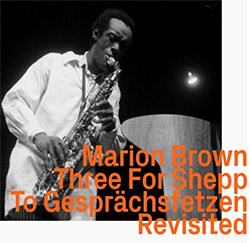
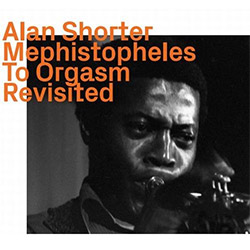

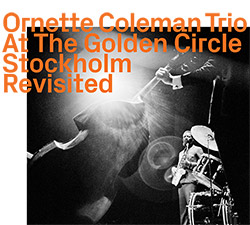

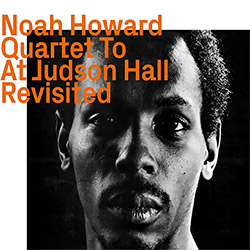
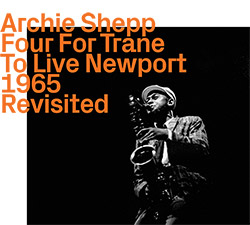
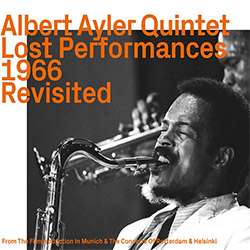

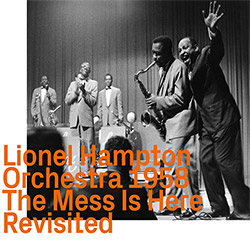
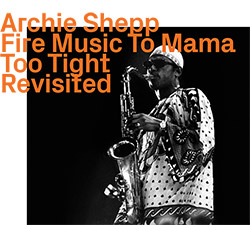




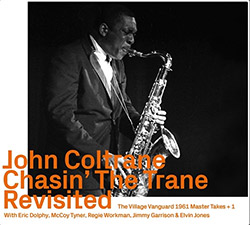
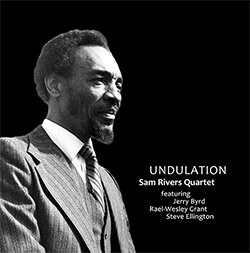
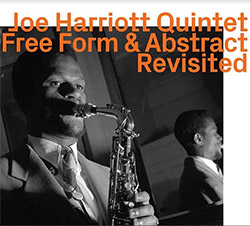




![BlueRing Improvisers: Materia [2 CDs]](https://www.teuthida.com/productImages/misc4/36513.jpg)








![Wheelhouse (Rempis / Adasiewicz / McBride): House And Home [VINYL]](https://www.teuthida.com/productImages/misc4/36462.jpg)
![+DOG+: The Light Of Our Lives [2 CDs]](https://www.teuthida.com/productImages/misc4/36009.jpg)


![Parker, Evan / Jean-Marc Foussat: Insolence [VINYL]](https://www.teuthida.com/productImages/misc4/36398.jpg)










![Deupree, Jerome / Sylvie Courvoisier / Lester St. Louis / Joe Morris: Canyon [2 CDs]](https://www.teuthida.com/productImages/misc4/36404.jpg)



![Eventless Plot | Haarvol: The Subliminal Paths [CASSETTE + DOWNLOAD]](https://www.teuthida.com/productImages/misc4/36232.jpg)









![Eventless Plot | Francesco Covarino: Methexis [CASSETTE + DOWNLOAD]](https://www.teuthida.com/productImages/misc4/36231.jpg)



![Das B (Mazen Kerbaj / Mike Majkowski / Magda Mayas / Tony Buck): Love [VINYL]](https://www.teuthida.com/productImages/misc4/36329.jpg)


![Eternities: Rides Again [CASSETTE]](https://www.teuthida.com/productImages/misc4/36247.jpg)
![Lopez, Francisco: Untitled (2021-2022) [2 CDs]](https://www.teuthida.com/productImages/misc4/36438.jpg)






![Money : Money 2 [2 CDs]](https://www.teuthida.com/productImages/misc4/35894.jpg)




![Klinga, Erik: Elusive Shimmer [VINYL]](https://www.teuthida.com/productImages/misc4/36258.jpg)
![CHANGES TO blind (Phil Zampino): Volume 9 - I Wave on a Fine Vile Mist [CD + DOWNLOAD]](https://www.teuthida.com/productImages/misc4/36061.jpg)

![Wallmart / Rubbish: Asset Protection [split CD]](https://www.teuthida.com/productImages/misc4/35900.jpg)


![+Dog+: The Family Music Book Vol. 5 [2 CDs]](https://www.teuthida.com/productImages/misc4/35897.jpg)
![Kuvveti, Deli : Kuslar Soyledi [CASSETTE w/ DOWNLOAD]](https://www.teuthida.com/productImages/misc4/36107.jpg)

![Brown, Dan / Dan Reynolds: Live At The Grange Hall [unauthorized][CASSETTE]](https://www.teuthida.com/productImages/misc4/36245.jpg)








![Palestine, Charlemagne / Seppe Gebruers: Beyondddddd The Notessssss [VINYL]](https://www.teuthida.com/productImages/misc4/36206.jpg)
![Palestine, Charlemagne / Seppe Gebruers: Beyondddddd The Notessssss [NEON GREEN VINYL]](https://www.teuthida.com/productImages/misc4/36207.jpg)

![Laubrock, Ingrid: Purposing The Air [2 CDs]](https://www.teuthida.com/productImages/misc4/35639.jpg)

![Yoko, Ono / The Great Learning Orchestra: Selected Recordings From Grapefruit [2 CDs]](https://www.teuthida.com/productImages/misc4/35841.jpg)









![Zorn, John / JACK Quartet: The Complete String Quartets [2 CDs]](https://www.teuthida.com/productImages/misc4/35609.jpg)

![Lonsdale, Eden: Dawnings [2 CDs]](https://www.teuthida.com/productImages/misc4/35480.jpg)



![Sorry For Laughing (G. Whitlow / M. Bates / Dave-Id / E. Ka-Spel): Rain Flowers [2 CDS]](https://www.teuthida.com/productImages/misc4/35985.jpg)

![Rolando, Tommaso / Andy Moor : Biscotti [CASSETTE w/ DOWNLOADS]](https://www.teuthida.com/productImages/misc4/36106.jpg)


![Electric Bird Noise / Derek Roddy: 8-10-22 [CD EP]](https://www.teuthida.com/productImages/misc4/35970.jpg)








![Elephant9 : Mythical River [VINYL]](https://www.teuthida.com/productImages/misc4/34624.jpg)



![Elephant9 with Terje Rypdal: Catching Fire [VINYL 2 LPs]](https://www.teuthida.com/productImages/misc4/35355.jpg)
![Deerlady (Obomsawin, Mali / Magdalena Abrego): Greatest Hits [VINYL]](https://www.teuthida.com/productImages/misc4/34876.jpg)







![Surplus 1980: Illusion of Consistency [CD]](https://www.teuthida.com/productImages/misc4/35069.jpg)
![Staiano, Moe: Away Towards the Light [VINYL + DOWNLOAD]](https://www.teuthida.com/productImages/misc4/35037.jpg)
![Coley, Byron: Dating Tips for Touring Bands [VINYL]](https://www.teuthida.com/productImages/misc4/17906.jpg)

![Lost Kisses: My Life is Sad & Funny [DVD]](https://www.teuthida.com/productImages/misc4/lostKissesDVD.jpg)